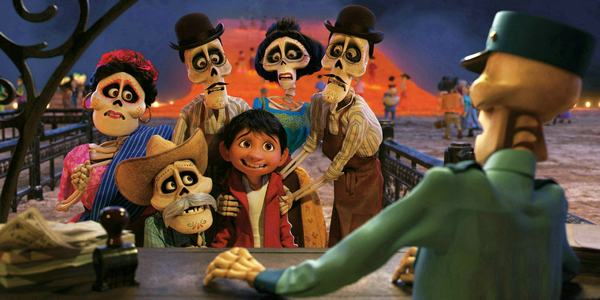Celebrating Mexico’s Day of the Dead in China


Like in many other cultures, death, to some extent, is a taboo in Chinese culture that can easily stir up people's fears.
But for Mexicans, death is just as worth celebrating as life. The Day of the Dead (Día de Muertos) is a Mexican festival that celebrates the temporary return of the dead to Earth with food, music, dance, and parades.
Under the auspices of the Mexican embassy in China, a medley of celebrations, including art exhibits, film screenings and markets, will grace major Chinese cities over the upcoming weekend to mark this year's Day of the Dead.
"For both Chinese and Mexican people, it is of great importance to honor the lives of our ancestors, and Day of the Dead is Mexico's most important tradition," said Tania Lara, cultural attache with the Mexican embassy in China.
Held on Nov 1 and 2 each year, Day of the Dead stretches back some 3,000 years. Ancient indigenous Mexican peoples considered the dead, kept alive in memory and spirit, were still members of the community and mourning them was disrespectful. It's believed that during Day of the Dead, the deceased awaken from their eternal sleep to reunite with their loved ones by paying a short visit back to Earth.
This year people in Beijing can head to the CHAO Art Center in Sanlitun to appreciate an elaborately decorated altar, a work by Mexican visual artist Betsabee Romero, which, as the artist revealed, "is dedicated to all people who have lost lives for the same reasons around the world."





































